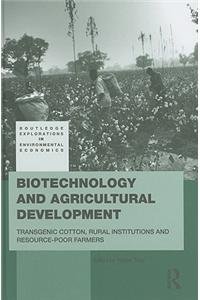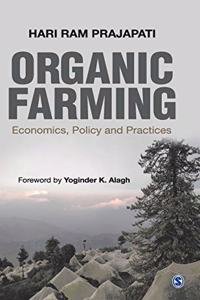Only logged in customers who have purchased this product may leave a review.
Sale!
Biotechnology and Agricultural Development (Hardback) | Released: 01 May 2009
By: Tripp Rob (Author) Publisher: Taylor & Francis Ltd33.00% Off Original price was: 19,145.00$.12,827.00$Current price is: 12,827.00$.
You save 6,318.00$
This book addresses the continuing controversy over the potential impact of genetically modified (GM) crops in developing countries. Supporters of the technology claim it offers one of the best hopes for increasing agricultural production and reducing rural poverty, while opponents see it as an untested intervention that will bring corporate... Read More
In stock
Ships within 1-2 Business Days

100% Orginal Books

Easy Replacement

Certified product

Secure Checkout

On time delivery
Author:
![]()
Tripp Rob
Publisher Name:
![]()
Taylor & Francis Ltd
Language:
![]()
English
Binding:
![]()
(Hardback)
About The Book
This book addresses the continuing controversy over the potential impact of genetically modified (GM) crops in developing countries. Supporters of the technology claim it offers one of the best hopes for increasing agricultural production and reducing rural poverty, while opponents see it as an untested intervention that will bring corporate control of peasant farming. The book examines the issues by reviewing the experience of GM, insect-resistant cotton, the most widely grown GM crop in developing countries. The book begins with an introduction to agricultural biotechnology, a brief examination of the history of cotton production technology (and the institutions required to support that technology), and a thorough review of the literature on the agronomic performance of GM cotton. It then provides a review of the economic and institutional outcomes of GM cotton during the first decade of its use. The core of the book is four country case studies based on original fieldwork in the principal developing countries growing GM cotton (China, India, South Africa and Colombia). The book concludes with a summary of the experience to date and implications for the future of GM crops in developing countries.This review challenges those who have predicted technological failure by describing instances in which GM cotton has proven useful and has been enthusiastically taken up by smallholders. But it also challenges those who claim that biotechnology can take the lead in agricultural development by examining the precarious institutional basis on which these hopes rest in most countries. The analysis shows how biotechnology's potential contribution to agricultural development must be seen as a part of (and often secondary to) more fundamental policy change. The book should be of interest to a wide audience concerned with agricultural development. This would include academics in the social and agricultural sciences, donor agencies and NGOs.About the Author: Robert Tripp has a doctorate in social anthropology and has spent his career working on issues related to agricultural technology development and dissemination. He spent 15 years with the Economics Program of the International Maize and Wheat Improvement Center (CIMMYT) and 12 years as a research fellow with the Overseas Development Institute (ODI).








Reviews
There are no reviews yet.